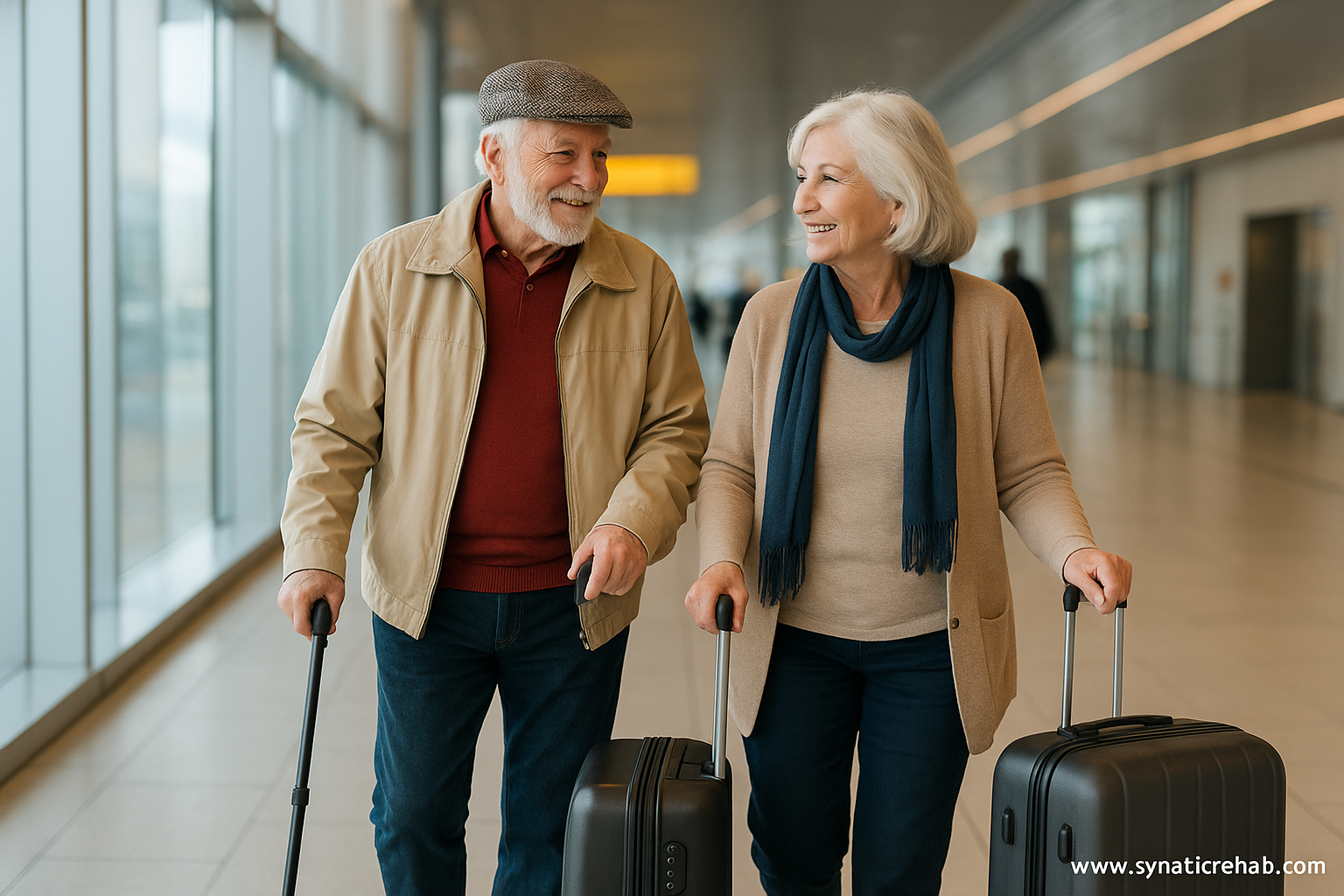Holiday Travel Tips for Seniors: How to Stay Safe and Mobile on the Go
The holidays are a time for connection — visiting family, enjoying traditions, and creating memories. But for many seniors, travel can bring unique challenges: long hours sitting, unfamiliar environments, and changes in routine that affect mobility and comfort.
Whether you’re planning a road trip or flying across the country, these simple steps can help you stay active, safe, and confident throughout your holiday travels.
1. Plan Ahead — and Give Yourself Time
Rushing increases stress and risk of falls. If you use a cane, walker, or mobility aid, allow extra time to navigate airports or rest stops.
- Check with airlines in advance for wheelchair assistance or early boarding.
- Bring copies of your prescriptions and a list of medications.
- If you have Parkinson’s, discuss travel timing around medication schedules with your doctor.
More helpful advice: Traveling with Parkinson’s | Parkinson’s Foundation.
2. Pack Smart for Mobility and Comfort
A little preparation makes a big difference:
- Choose light luggage with wheels and handles on both sides.
- Wear comfortable, non-slip shoes.
- Pack small resistance bands or a stress ball to keep muscles active during long trips.
- Don’t forget compression socks to support circulation.
3. Keep Moving — Even in Transit
Long periods of sitting can stiffen joints and reduce blood flow.
Try these mini-exercises every hour:
- Roll your ankles and shoulders.
- Stretch your legs and stand up if possible.
- Do seated marches or light calf raises.
If you’re managing a neurological condition like Parkinson’s, these small movements can help reduce stiffness and maintain control.
4. Stay Hydrated and Nourished
Dry cabin air, caffeine, and cold weather can all lead to dehydration — which increases muscle cramping and fatigue.
- Drink water regularly.
- Eat balanced snacks like nuts, fruit, or protein bars.
- Limit alcohol and caffeine, especially before long travel days.
5. Choose the Right Accommodations
When booking hotels or staying with family:
- Request a ground-floor room or elevator access.
- Ask for grab bars or shower chairs if needed.
- Keep pathways clear and well-lit to reduce tripping hazards.
These simple safety adjustments can make a big difference in comfort and independence.
6. Get a Tune-Up Before You Go
Before traveling, consider scheduling a session with a physical therapist.
A pre-travel check-in can help you:
- Learn gentle stretches for the road
- Improve endurance and balance
- Review safe transfer techniques for planes, cars, or hotels
Our Physical Therapy Services can help you prepare for a confident, stress-free trip — whether you’re managing Parkinson’s, recovering from an injury, or just want to stay active while traveling.
The Bottom Line
Holiday travel should be about joy, not worry. With the right preparation and movement habits, you can protect your mobility, reduce stiffness, and make the most of every visit.
If you notice increased stiffness, fatigue, or balance problems after traveling, our therapists can help you bounce back quickly.
📍 Visit us at 1200 Route 22 East, Suite 4, Bridgewater, NJ 08807
📞 Call: 908-801-6425
Steven Cheung, DPT
Steven is the founder and lead physical therapist at SYNAPTIC Rehabilitation. He earned a BS in Exercise Science Applied Kinesiology from Rutgers University in New Brunswick, NJ and his Doctorate degree from American International College in Springfield, MA. Steven specializes in movement disorders such as Parkinson’s disease and many other neurological disorders. Outside of practicing physical therapy Steven enjoys time with his wife, running, and staying active.

